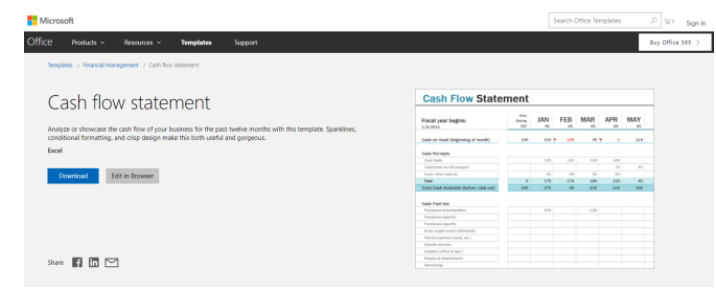When a startup is in its earliest stages, staying within budget is extremely important. Running a business involves many expenses. Especially during the early days where there isn’t yet a steady source of income, entrepreneurs should aim to stay within budget and make the most of their existing resources.
Here are some top tips for how to stay within budget while running your startup:
Negotiate with suppliers
When dealing with suppliers, negotiate better prices in order to keep your costs at a minimum. There are four steps you should take when negotiating:
1. Develop a relationship
Communicate effectively and build a rapport in order to develop a good relationship with the supplier. This way, when you begin negotiating, you will already have a leg up because you will be someone the supplier actually wants to work with.
2. Study the industry
Learn more about your supplier and their industry in order to have the information necessary to know what to expect from the negotiation. For example, research the actual cost of the product the supplier is selling you and what other suppliers are offering it for. That way you’ll have a more accurate idea of what is suitable when negotiating a price. Studying the industry will also make you appear more knowledgeable, making the supplier more likely to respect you and your requests.
3. Offer something in return
Work out what type of concessions you can offer the supplier, if any. For example, in return for a discounted price, you could grant them exclusivity. Show the supplier that you have their best interests at heart by persuading them that their partnership with you is worth it.
4. Stay flexible
Create an agile strategy – stay flexible and simple, allowing yourself to adjust your strategy as the negotiation progresses. If the supplier won’t offer you exactly what you want, have alternative options available in different areas. For example, if the supplier won’t offer a discount in price per item, see if you can have a better warranty.
Manage your team effectively
A team that works efficiently and productively will help you get the most out of your employees and use resources wisely. Use these initiatives to lead your team and encourage your employees to work hard and keep them motivated.
1. Have a reward system
When an employee has worked hard, thought of a great idea, or achieved something impressive, make sure it is recognized. This could be through monetary compensation; however, verbal recognition, benefits and incentives (such as free lunch vouchers, covering travel expenses, etc.) can be just as well received. This will encourage employees to continue excelling.
2. Make the physical environment comfortable
Ensure office furniture is comfortable and promotes good health, and that the environment is pleasant so that employees enjoy the work atmosphere. An enjoyable work environment can increase employee satisfaction and productivity.
3. Create a fair set of rules
It will be easier to solve problems with employees and maintain respect when the rules are clear. Also, when there are a clear set of rules, employees will know exactly what is expected of them.
4. Keep work interesting and encourage development and productivity
Recent research by ReportLinker found that 78% of employees who say their companies encourage creativity and innovation are committed to their employer. Ensure work is challenging and exciting to prevent boredom and foster excitement about the work to be done. Use mentoring systems, coaching, and networking events to encourage employees and keep things interesting. Develop a culture that promotes productivity and a good work ethic.
5. Treat employees as individuals
Every employee has their own set of strengths and weaknesses. When giving tasks to employees, focus on their strengths to maximize their potential. Identify each employee’s individual needs and expectations and most importantly, allow time for rest and relaxation.
Save costs whenever possible
The initial expenses of launching a startup might seem daunting, but with a few careful considerations you can reduce these expenses. By acting frugally, it will be easier for you to procure the funds you need to get the business started. Here are some tips on saving money for your startup.
1. Spend less on basic startup requirements
The most common basic expense that can be avoided is paying for office rental and utilities. To save on the costs of running an office, allow employees to telecommute and work from home. If you do need an office, however, try renting shared office space instead. Employ interns to fill certain positions, and use websites like Fiverr to get a logo designed at a low cost. You can also use open source software instead of investing in expensive subscription-based software.
2. Earn and put aside money while beginning your business
If launching your startup isn’t your full-time job, try and keep another job on the side. This can provide you with an income to support your startup costs.
Attempt to lower your own expenses whenever possible to build up savings. Another great option for earning money is to use websites like Kickstarter and Indiegogo, which enable you to raise money for your business through crowdfunding.
Managing cash flow
Managing cash flow is critical to startup to survival. Stay in control of your cash flow by carefully tracking your funds through following these steps.
1. Make use of management software
Ensure you manage incoming cash (accounts receivable, sales), money payable (accounts payable), and any shortfalls. A great way to do so is by utilizing a cash flow template to create statements for analyzing cash flow. Templates for Microsoft Excel can be downloaded from the Microsoft Office website.
2. Make sure to follow up on receivables
Invoice customers as soon as possible. Then, keep someone in charge of following up with customers to collect funds, and maintain clear payment terms with fixed commitment to make payments within a set time frame.
3. Set clear financial goals
Calculate a breakeven point, so you know when you will begin to profit from the business. Consistently set targets, so you have a goal to aim for.
4. Prepare for a rainy day
While you are starting out, see what your bank has to offer in terms of credits and overdraft protection that might help with initial expenses. Also, ensure you always have some extra cash set aside in case there are any shortfalls along the way.
Maximizing productivity and reducing expenses is the winning combination when it comes to staying within budget when launching your startup. Track your expenses, save money where possible, and motivate your employees to give your startup the best chances of success.


